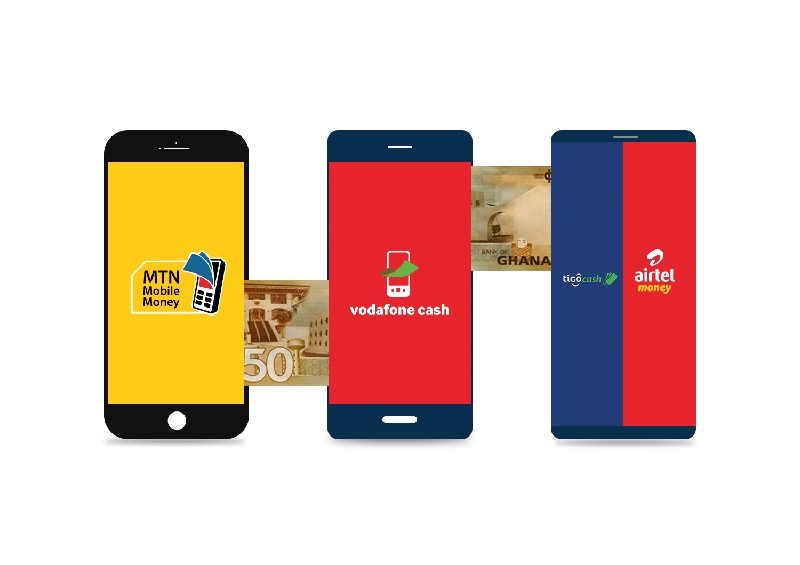Just a year after its launch, Mobile Money Interoperability has hit GH¢95.88million in value for the first quarter of 2019, the Payment Systems Statistics report published by the Ghana Interbank Payment and Settlement Systems (GHIPSS) has revealed.
Mobile Money Interoperability is a system that makes mobile money transactions among different networks possible.
The report, published by GHIPSS shows that of all the services offered by the mobile money interoperability platform – namely, wallet to wallet, wallet to account, and wallet to E-Zwich – it was wallet to wallet that recorded the highest transactions of GH¢85.73million, representing 89.4% of all transactions.
This was followed by the wallet to Account transactions, which recorded a value of GH¢10.14million representing 10.5 percent of the total transactions on the platform; whereas wallet to E-zwich transactions recorded the least of just GH¢8,343.
What this means is that many of the subscribers to mobile money find it easy and convenient undertaking transactions between mobile money accounts, rather than undertaking transactions between their mobile money accounts and their bank and E-Zwich accounts.
The report further shows that the value of cheque transactions has declined by more than 10% within the same period, dropping to GH¢43.9million from GH¢48.8million – a clear indication that more people are now finding the mobile money platform more convenient than using cheques for their business transactions.
The success of mobile money interoperability has reignited the long debate in the financial sector about whether the platform’s insurgence poses future threats to the banking sector.
In fact, the Oxford Business Group (OBG) affirmed in its report earlier this year that mobile money indeed poses some threats to banks.
The report indicated that the growing trend of mobile money transactions in the country poses a significant threat to the future of banks, should the telecommunication companies start applying for digital banking licences.
The largest share of mobile money deposits in Ghana, the report reveals, rest with Fidelity Bank; followed by Ecobank and CAL Bank. This means that if the mobile money companies eventually become digital banks— which the report strongly predicts will happen—banks will no longer be custodians of the mobile money accounts, a situation the OBG says will be disruptive to traditional lenders.
The OBG report added that similar trends happening across the globe have birthed products such as online savings accounts, personal finance management tools, real-time alerts, home loans, investments, fee-free international transactions, person-to-person payments, currency exchange, linked debit and credit cards, cash withdrawals at ATMs, and insurance and consumer benefits such as cash back rewards on purchases—all of which have posed serious competition to the traditional banking systems of countries where these innovations have taken place.
Credit: B&FT


